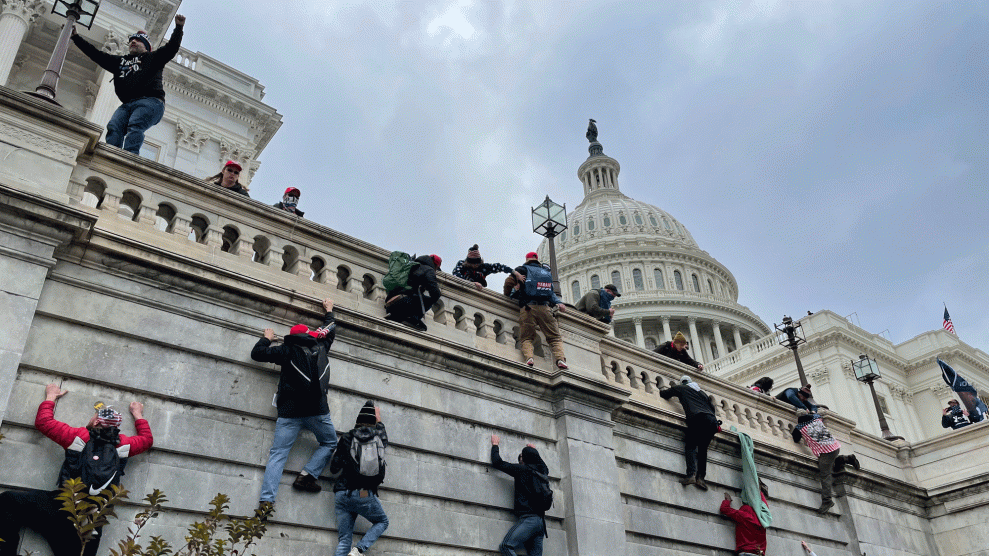
Chris Kleponis/Sipa via AP
Donald Trump had a plan to steal the 2020 election: he wanted GOP-controlled legislatures in key states Joe Biden won to override the will of their state’s voters and appoint their own electors for Trump, which Vice President Mike Pence would count when Congress met on January 6, nullifying Biden’s victory.
This brazen attempt to overturn the 2020 election didn’t succeed, but Trump and his allies are doing everything they can to ensure a different outcome in 2024, and they’re helped by an obscure 1887 law called the Electoral Count Act that is in desperate need of a rewrite.
The Electoral Count Act, which grew out of the disputed election of 1876, says that a legislature can appoint its own electors at odds with the winner of a state’s popular vote if it concludes that voters “failed to make a choice” on Election Day. The act does not specify what “failed” means, an ambiguity that provides an opening for Republicans to claim—like they did in 2020—that unproven accusations of voter fraud could result in a “failed election,” giving the legislatures the power to usurp the preferences of a state’s voters.
The risk of a constitutional crisis is why both Democratic and Republican members of the House committee investigating the January 6 insurrection are planning to recommend that Congress revise the Electoral Count Act to prevent an attempt at stealing the 2024 election, according to the New York Times.
“There are a few of us on the committee who are working to identify proposed reforms that could earn support across the spectrum of liberal to conservative constitutional scholars,” Rep. Adam Schiff (D-Calif.) told the paper. “We could very well have a problem in a future election that comes down to an interpretation of a very poorly written, ambiguous and confusing statute.”
“The 1887 Electoral Count Act is directly at issue,” added Rep. Liz Cheney (R-Wyo.)
A bipartisan group of experts with the National Task Force on Election Crises has been working for months to recommend reforms to the Electoral Count Act. The Washington Post’s Greg Sargent summarizes the key ones:
-
Dramatically raise the threshold for objections to electors in Congress, well above one member from each chamber. Reform could also codify what grounds must be met for objections to be heard by the full Congress.
-
Clarify how congressional disputes over electors are resolved. The statute needs to explain precisely what happens in Congress in every such scenario.
-
Clarify the “safe harbor” provision so it’s absolutely clear that if a state resolves its own disputes over electors by that deadline, Congress must count them.
-
Clarify the vice president’s role so it’s clear it does not include resolving congressional disputes over electors.
While Republicans have steadfastly refused to support Democratic-sponsored legislation that would make it easier to vote, writers and experts for conservative outfits such as National Review, the Cato Institute, and the American Enterprise Institute have supported changes to the Electoral Count Act, suggesting there could be bipartisan support in Congress for revising it, although it remains to be seen whether such reforms could garner 60 votes in the Senate.
The ongoing threats to democracy go well beyond the Electoral Count Act and include a wave of new voter suppression laws, gerrymandered maps, and election subversion laws at the state level. But revising an antiquated law that could lead directly to a stolen election should be the bare minimum of what Congress does.
















